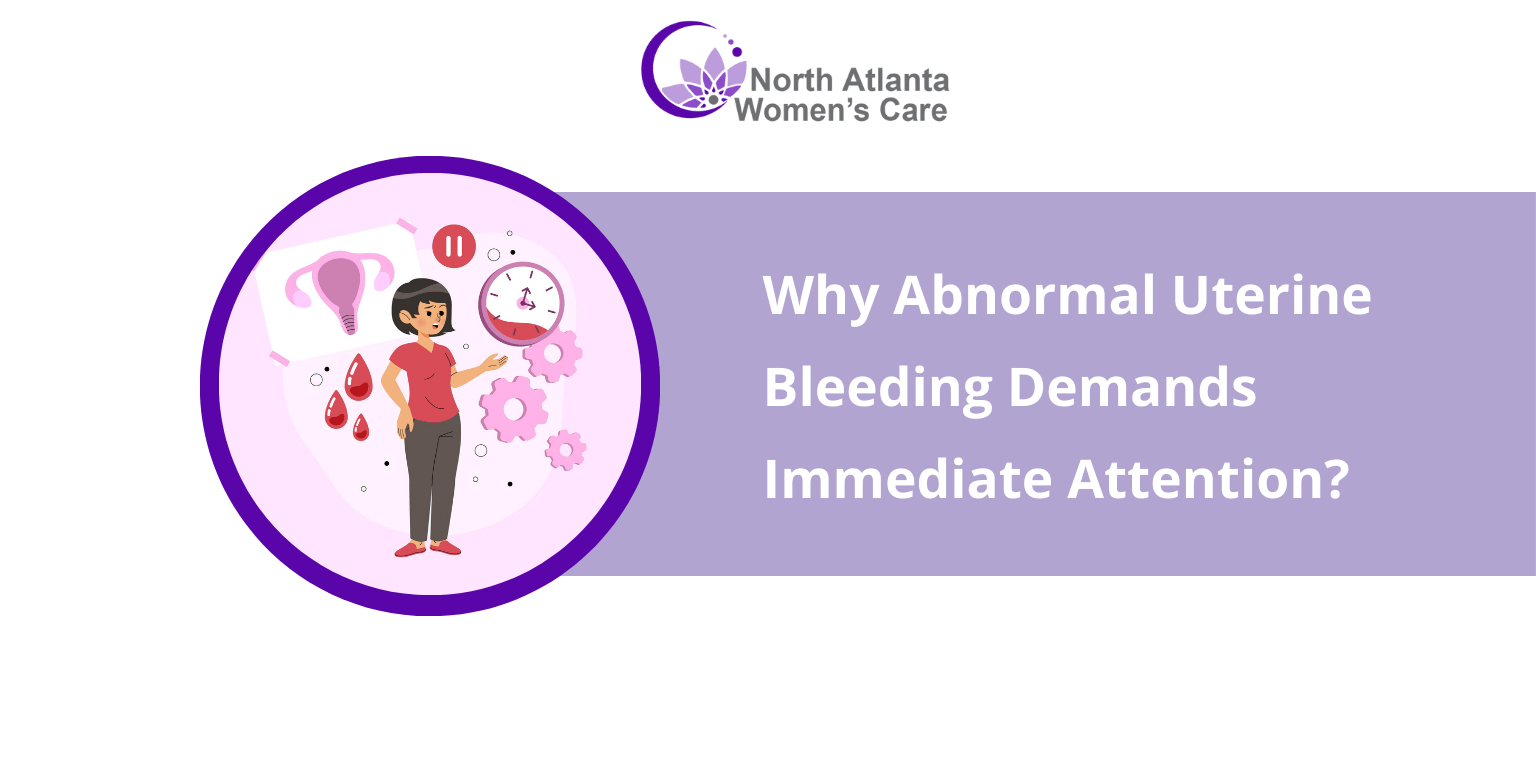Why Abnormal Uterine Bleeding Demands Immediate Attention

Abnormal uterine bleeding is a common medical condition among women and girls of fertile age. Also known as dysfunctional uterine bleeding, it refers to excessively heavy menstrual bleeding or bleeding for a longer-than-normal period during your menstrual cycle. It also includes abnormal vaginal bleeding or spotting that you may experience outside your menstruation.
While abnormal vaginal bleeding may not always be a cause for alarm, ignoring it may lead to serious health complications later. In the U.S., over 10 million women are diagnosed with abnormal uterine bleeding. However, the numbers may be much higher as many do not seek medical attention for their condition. In this blog, you will learn more about abnormal uterine bleeding.
Symptoms of Abnormal Uterine Bleeding
If you have the following symptoms, you may have abnormal uterine bleeding:
- Heavy bleeding, which requires you to change your sanitary product within an hour several times
- The bleeding continues for over a week
- An irregular menstrual cycle, which is shorter than 21 days or extends over 35 days
- Cramps and fatigue
- Impacts your daily activities
- No menstruation for 3 to 6 months
- Bleeding or spotting between periods
- Bleeding or spotting after sexual intercourse
- Post-menopausal vaginal bleeding or spotting
Causes of Abnormal Uterine Bleeding
You may be experiencing abnormal vaginal bleeding due to any of the following causes:
- Uterine Polyps or Fibroids: Uterine polyps and fibroids are usually benign small growths found within the uterus lining, wall, and muscle tissue that can cause heavy bleeding and pain during your menstrual period.
- Hormone Imbalance: Women whose bodies produce excess estrogen and not enough of the progesterone hormone suffer from hormonal disorders leading to abnormal vaginal bleeding.
- Endometriosis: It is a condition in which the cells found in the lining of the uterine wall develop outside the uterus. Endometriosis is known to cause dysfunctional uterine bleeding, including severe cramping and bleeding during intercourse. Also Read: How to Cope with Endometriosis
- Ovulatory Dysfunction: Due to irregular or lack of ovulation, you may suffer from abnormal vaginal bleeding. The most common cause of ovulatory dysfunction is polycystic ovary syndrome (PCOS), wherein the ovaries produce more-than-normal male sex hormones, also called androgens.
- Pelvic Infection: An infection in your pelvic region may cause abnormal vaginal bleeding and may include pelvic pain during intercourse, vaginal discharge with a foul odor, and fever.
- Medications: Abnormal uterine bleeding can happen because of specific medicines such as anti-inflammatory drugs, anticoagulants, steroids, hormone imbalance medications, and contraceptives.
Risk Factors of Abnormal Uterine Bleeding
You may be at a higher risk for abnormal uterine bleeding if you have:
- Obesity
- PCOS
- Endocrine disorders
- Anovulatory diseases
- Just reached adolescence or nearing menopause
- Take anti-inflammatory, blood thinning, or cancer medications
- Are on birth control
Diagnosis Options for Abnormal Uterine Bleeding
If you're having unusual bleeding from your uterus, your gynecologist might use different methods to find out why. Here's how they figured it out:
- Medical History: Your doctor will talk to you about your health and any problems you've had.
- Physical Check-Up: They'll examine you for signs of any concerns.
- Blood Tests: A simple blood test helps your doctor learn more about your health and hormone levels.
- Ultrasound: This uses sound waves to create pictures of your uterus, helping to spot any problems.
- Biopsy: Your doctor might take a small sample from the lining of your uterus to check for any issues.
- Hysteroscopy: A thin tube with a camera is used to look inside your uterus and find any problems.
- MRI or CT Scan: These detailed scans provide more information about your reproductive organs.
Medical Treatments Offered for Abnormal Uterine Bleeding
Based on their diagnosis, your physician may offer any of the following abnormal uterine bleeding treatment options:
- Medications: These address disorders or infections that cause dysfunctional uterine bleeding, such as hormonal, endocrine, or other medical conditions.
- New Contraceptive: Switching to a different method of birth control to help with the bleeding.
- Minimally Invasive Procedures:
- Endometrial Ablation: Removes the inner lining of the uterus.
- Uterine Artery Embolization: Blocks blood supply to fibroids.
- MRI-guided Ultrasound Surgery: Destroys fibroids using sound waves.
- Myomectomy: Removes fibroids while keeping the uterus.
- Hysterectomy: This is a surgery where the uterus is removed. It's done when other treatments haven't worked to control abnormal uterine bleeding.
When Should You See a Physician for Abnormal Uterine Bleeding?
Suppose you have been suffering from excessive or frequent abnormal vaginal bleeding during and in between your period. In that case, it may be due to a condition that needs prompt diagnosis and treatment. Ignoring it may have serious complications, including different types of uterine cancers.
Get Exceptional Care for Abnormal Uterine Bleeding at North Atlanta Women's Care
Get the best care tips for managing abnormal uterine bleeding at your trusted clinic in Suwanee, GA. Our experienced gynecologists at North Atlanta Women's Care are always ready to help you. We consider your unique needs and existing health conditions to provide personalized recommendations that will support you. Contact us today to learn more about our services.
Comments are closed

